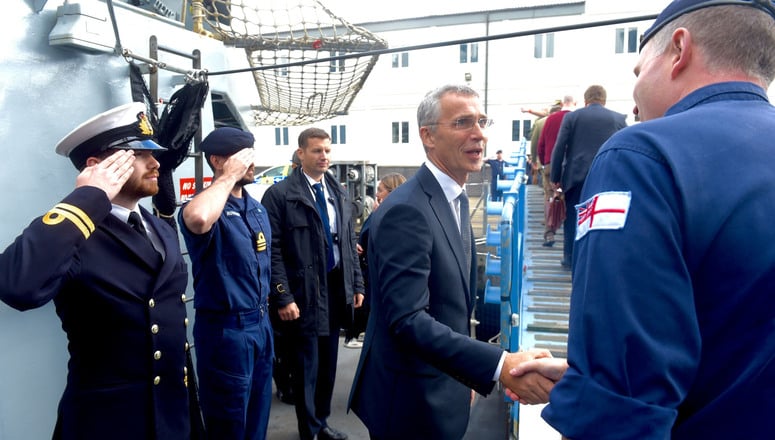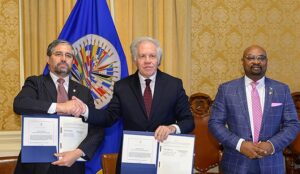NATO Secretary General marks 50 years of UK submarine nuclear deterrent
NATO Secretary General Jens Stoltenberg has praised the United Kingdom for maintaining a continuous at-sea nuclear deterrent for 50 years in a letter to Prime Minister Theresa May.

NATO Secretary General Jens Stoltenberg meets with the crew of the HMS Somerset
“In NATO, we appreciate this enormous commitment to our shared security by generations of Royal Navy submariners and their families, by scores of dedicated support personnel in the United Kingdom’s Armed Forces and Civil Service, and by partners in industry”, the Secretary General underlined.
At least one Royal Navy submarine carrying nuclear missiles has been on undersea patrol at all times since April 1969. This mission, called Operation Relentless, is the longest sustained military operation ever undertaken by the UK. Mr. Stoltenberg stressed that NATO Allies face a highly complex international security environment. “Our goal is to maintain peace and security for all our nations and people”, he wrote. “The commitment the UK has made, and continues to make, is a vital contribution to NATO’s overall deterrence effort, including against the most extreme potential threats. This helps protect all NATO Allies.”
In 1969, the UK began continuous at-sea nuclear deterrent patrols with four Resolution class boats. The mission is now provided by four Vanguard-class submarines based at Clyde Naval Base at Faslane in Scotland.
At the NATO Summit in 2018, all Allies reaffirmed that the fundamental purpose of NATO’s nuclear capability is to preserve peace, prevent coercion, and deter aggression. Allies stressed that given the deteriorating security environment in Europe, a credible and united nuclear Alliance is essential. While the circumstances in which NATO might have to use nuclear weapons are extremely remote, NATO will remain a nuclear alliance as long as nuclear weapons exist. At the same time, NATO remains committed to creating the conditions for a world without nuclear weapons. Since the end of the Cold War, Allies have reduced their collective nuclear arsenal in Europe by around 90 percent.














